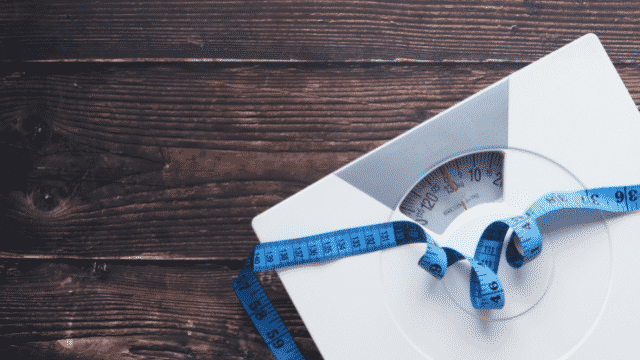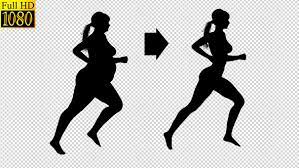
Most Runners recommend it.
Your friends swear by it
Even the celebrities you see in magazines do it.
Running is the best way to burn calories we are told, “weight just falls off” once you start running, you hear.
If that is the case, why can I not even lose 10 pounds running? Why am I the only one who seems to not lose weight running?
Sound familiar?
Even though you feel like you are alone in this. It is one of our most popular posts, and every day we get emails about it.
Even elite runners have to be conscious of this, and running to lose weight is not even as easy as you would think when they are training 100+ miles a week!
So does running help you lose weight?
While training for great performance on race day is the main focus for the Run Professor. Many of the runners we train set other goals to use running to lose weight add generally desire to be healthier overall.
Certainly, sometimes these two goals – setting a new pr and losing weight – go hand-in-hand, but as coaches we tend to focus on letting weight loss through running come naturally as the body adapts to training and new levels of fitness.
You might be wondering:
How can I lose weight fast running?
Sometimes when a runner first begins serious training, the needle on the scale doesn’t immediately come down. Especially for runners who believe that running faster will make them lose weight faster.
That is not always the case, and may even result in you gaining weight.
This trend can be frustrating and demoralizing to many new runners following a training plan, especially one as intense as a marathon training schedule.
If you understand the science behind initial weight loss and the practical reasons for why this occurs, you can temper yourself from getting discouraged and make positive and lose that weight for good while also improving your race times.
So, here are some reasons why you might actually gain weight when running:
Why Am I Not Losing Weight Despite Running Often?
If the scale were a human, he/she would be considered a deceptive trickster.
A scale only provides one number, your absolute weight, which isn’t always an accurate measurement of what is happening in your body.
Drink a gallon of water and you’ve instantly gained 8.3 pounds. Remove a kidney and you’ve lost 2 pounds.
Extreme examples, I know, but I think it proves that your absolute weight on a scale isn’t always a truthful assessment of changes in your weight, or more importantly your fitness.
Here are just a few reasons the numbers on the scale will lie to you:
It will take a while to lose water weight
When you increase your training to gear up for your goal race, your body begins to store more water to repair damaged muscle fibers and to deliver glycogen to the working muscles.
Likewise, you may even be drinking more water to supplement the miles and ensure your hydrated.
All this water adds pounds to the scale, but isn’t indicative of your actually weight loss.
Muscle “weighs” more than fat: true or false
True.
While you’re not going to turn into a body builder after just a few days of running, your body will slowly begin to build muscle and burn fat.
While this is great news for your overall fitness and race times, you’re actually gaining weight by supplementing low density fat tissue for high density muscle tissue.
While it may not look great on the scale, it’s much healthier and will help you to continue to get faster and fitter.
*Weighs more than fat means that muscle is more dense
Hidden Calories Are Preventing You Losing Weight Running
Many runners following a marathon training schedule automatically assume they are going shed pounds with all the extra mileage they are putting in.
However, not only should you ensure that you’re recovering properly after your hard workouts and long runs by eating the right foods, you also need to account for what I call “hidden calories”.
Primarily, hidden calories come in the form of sports drinks and energy gels, which have a high caloric content.
If you are wondering how to lose weight while training for a marathon, keep this in mind:
It’s critical that you practice your fueling strategy during your long runs and hard workouts for optimal performance on race day.
Likewise, to sustain high levels of training and to complete long and arduous marathon workouts, you need to fuel during your training sessions with sports drinks and energy gels.
But here’s the kicker:
However, this also means that the total number of calories you will burn from these long runs and hard workouts will be less than you might realize. Again, for optimal performance and training progression, you need these extra calories.
Unfortunately, they can also be the reason you might not see the weight loss on a scale.
Is Running The Best Exercise For Losing Weight?
Yes, but with a few stipulations:
Running will not automatically result in an immediate weight loss.
Sure, running burns more calories than any other form of exercise, but the scale should not be the primary metric by which you gauge your fitness level and training progression.
While I understand weight loss is an important goal for many runners, don’t become a slave to the numbers on the scale.
Pay attention to how you feel – do you have more energy, feel stronger, starting to fit into your clothes better? While not absolute measurements, these emotions are a much more accurate measurement of your progression
Disclaimer:
This post contains affiliate links which means I may receive a small commission if you purchase using that link at no extra cost to you. and if you do, I appreciate you!




